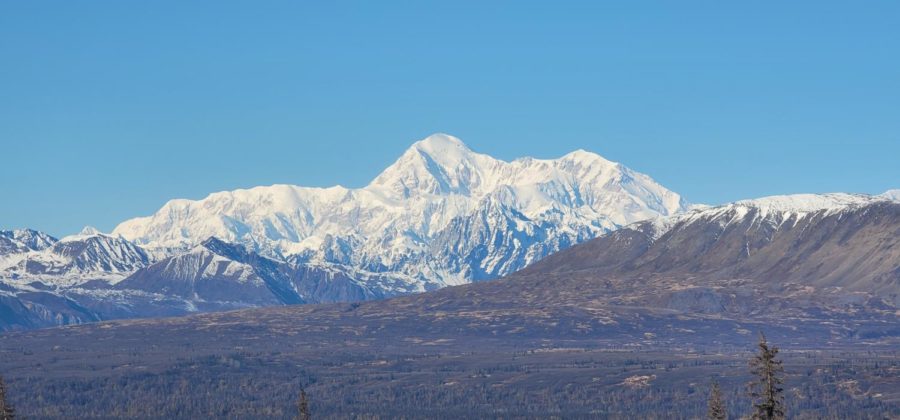Why the Willow Project harms us.
A mountain in Alaska stands as a reminder of the vast ecosystem that spans the country’s largest state
The Biden administration approved a bill on March 13 allowing for Houston-based oil company ConocoPhillips to drill in Alaska. The project is estimated to produce over 200 million metric tons of CO2 during the project’s 30-year span and 9.2 million metric tons each year. This will undoubtedly create even more problems for an already critical situation.
The Biden administration promised a 52% reduction of greenhouse gasses by 2030 – standing in direct contradiction to the administration’s supposed “goal.” On top of the long-term effects of a large amount of CO2 being pumped out, it’s also controversial for its impact on the local indigenous communities living close to the reserve, as it escalates a long standing problem of rising sea levels and potential flooding – an existential threat for villages on the Alaska coastline.
Supporters of The Willow Project claim it’s a solution for the ongoing energy crisis that would get rid of American dependence on foreign oil, but that is a convoluted argument. While it is true that it would lower American dependency on foreign oil, it is a BandAid solution for rising gas prices that’ll only complicate the even bigger problem that is greenhouse gasses. The effects of climate change have already been seen, but there’s a litany of issues. The most notable being rising sea levels that threaten America’s coastline and parts of Alaska, increased drought in areas and the displacement of millions of people whose homes are in danger of being flooded. A better solution would be to switch to nuclear energy, the current largest source of clean power in America. This would reduce our country’s dependency on not only foreign oil, but fossil fuels as a whole, while also increasing the use of solar and wind energy in our daily lives.
Still, we haven’t been able to get rid of the chokehold fossil fuels have on our lives, not because we don’t have alternatives, but because the alternatives aren’t as profitable to oil companies and the politicians they lobby. The Willow Project, after all, was pushed heavily by lawmakers close to ConocoPhillips, including Alaska Senator Lisa Murkowski, not to mention the company spent upwards of $200,000 to a lobbying firm for “exploration and development in Alaska.” The oil lobby has had a grip on politics and has routinely attempted to block any form of action on climate change which directly hurts its profits — this prohibits any real action on climate change from happening.
An unexpected consequence of this has been the backlash of the project on social media. While online mobilization and a five million signature petition certainly show that Gen Z is aware of what’s happening, it offers no true solutions. While these people mean well, signing an online petition or posting an Instagram story is about as useful as trying to convince your town the sky is falling.
Any solution to the problem we face as a species has to end with a complete overhaul of the way our political system is set up so that companies can’t just “buy” lawmakers for their own gain. Judging by the way things are going, I don’t see anything changing, but just because we won’t be able to make change in the immediate future doesn’t mean we shouldn’t push back for future generation’s sake.

Junior Felipe Castro is a reporter and this is his second year on staff. He enjoys watching old movies, writing songs and playing guitar.



